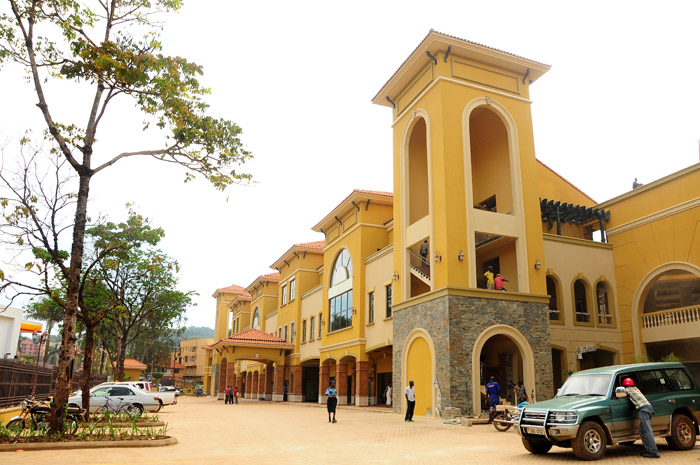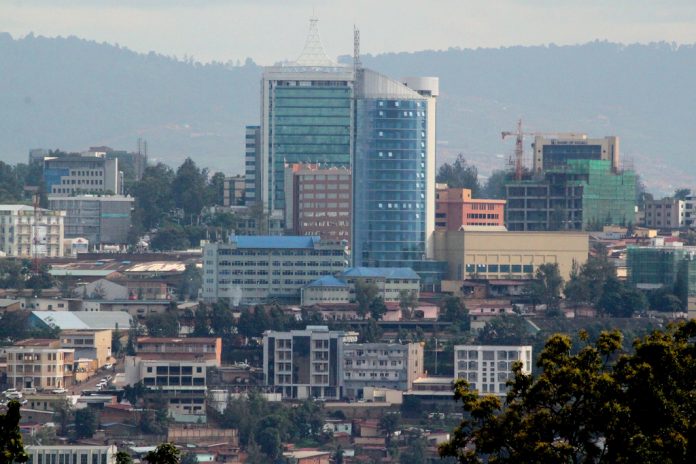When we started our road to development, we just wanted progress, however small or fleeting. Every new building coming up in town was an object of pride to us. It is only now that we are asking if these buildings are appropriate for us. A naked man can grab a woman’s dress just to cover his nakedness, but after that he realizes that it is not appropriate. We are trying to fulfill an architectural plan with little regard for the occupiers, so they lie empty.
The Govt and banks which lent out millions of dollars to people to build these empty shells now wants to force businesses into these empty buildings to pay off the loans. Firstly rents are RIDICULOUS sometimes $25 a square meter is the norm for renting an office in Kigali, only 5% of businesses can afford that. The builders made wild projections that customers would pay over the odds for space. In a residential house, a business can have up to 600 sqm for $300, with a garden, ample parking, security, and most important – a homely environment. I don’t think Govt can evict businesses from their spots forcefully in an ELECTION year without undue trouble. This is what you get when people with no political acumen run a city with no idea of the political implications of their actions. Many people work from home, 90% of SME’s are based at Home, how will we stop a bicycle fundi from fixing bikes at home? The best they can do is raise property taxes for residential areas used as commercial property, this would mean any savings made will be lost.
White elephants
Rwanda is like the guy who buys clothes 4 sizes too big hoping to grow into them. It is good to anticipate demand but it is also dangerous, it might not work out the way you planned. Then millions of dollars in locked up in static capital, on top of that is the mountain of debt, the high costs of maintaining high-rise properties and lack of clients. The massive increase in office space has not brought down the price of an office, it has even increased under the debts it took to build them. Owners need to reduce prices to get higher occupancy, but that needs refinancing over a longer term. Then these buildings are dark and dingy, they have tiny rooms to maximize profits, the water is often intermittent, plumbing often fails, people just don’t want to climb up to the 6th floor to seek your services. Rwandans prefer to come to an office which is like a home, to be received in a home, and to discuss business while gently sipping tea on a sofa. A cold hard sterile office is bad for business, you never get the client to relax enough to do a deal, Rwandans do business on a personal level after a personal connection. There are so many who will lose their jobs if this move is implemented, home offices have maids, gardeners, security guards, cooks, cleaners, who maintain them. Home Offices make sense to NGO’s that want to maximize their impact by saving money which they use to help their target groups, plus they can house their interns and staff in the back rooms. Placing the burden of rents of $1,500 a month for an ill-suited office will affect NGO’s who help the most vulnerable in society, they should be exempt.
People-centered design
The Kigali Masterplan is a wonderful idea, but it has a fatal flaw – it doesn’t have room for organic growth, organic growth must only happen in places designated for it. This means the areas designated for commercial activity are too expensive for a small factory to start or even a random idea to flourish. We need growth in Rwanda, we should not restrict it because it is not exactly the way we planned it. The problem is a lack of people-centered design, the plan doesn’t understand basic human nature. You go and build malls in town to urbanise, malls are not for town, the whole point of a mall is to avoid going to town. The planners expected us to put on our Sunday best, get stuck in traffic, pay high parking fees to shop at Makuza. The Rwandan genius who doesn’t copy mistakes will win, the genius who builds a good mall in Kibagabaga, or Gahanga, Kisementi, or somewhere out of town will make millions. Malls are for suburbs, not for town, it is to avoid going to town and to get everything in one place. Another problem they never build a business ecosystem, a mall should have banks, supermarkets, clothes shops, shoe shops, jewelry, electronics, home care, basically everything in one place so you don’t walk around too much. Owners have failed to understand this, you have to build a portfolio of businesses that make it worth coming, not just rent to the highest bidder. You need human traffic, a person comes for a bank, passes by the supermarket, goes to the coffee shop and buys a pair of shoes.

PHOTO BY LILLIA BABIRYE































































